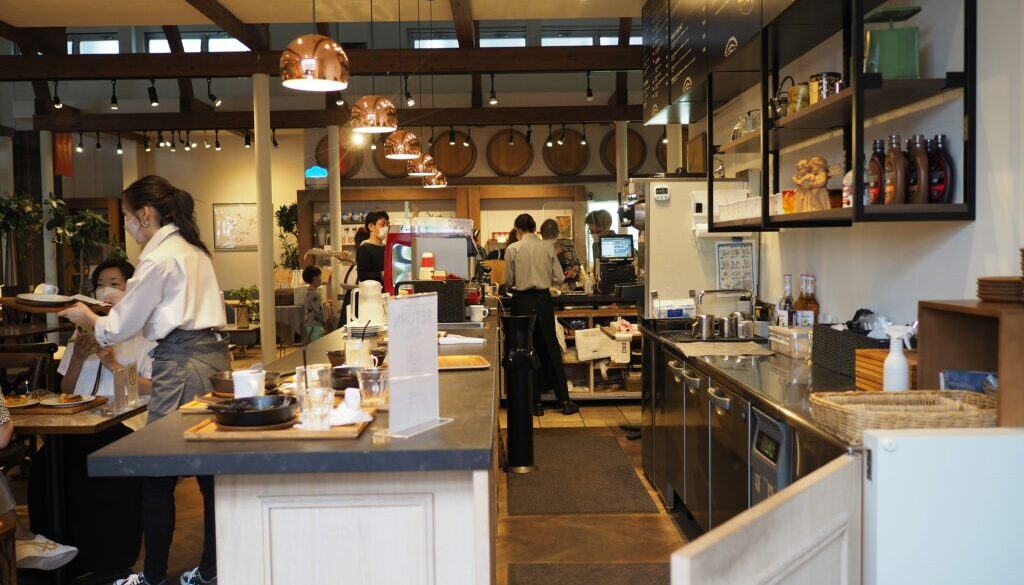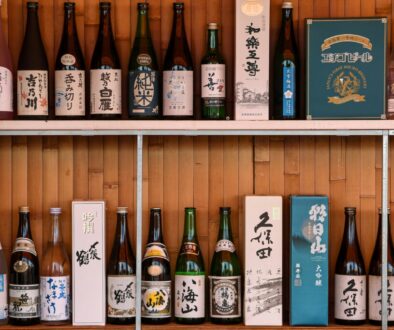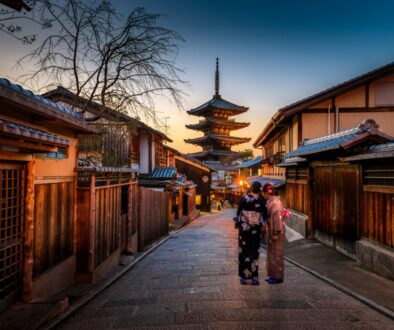Kyoto may be famous for its temples, tea ceremonies, and timeless streets, but locals know this city runs just as much on coffee as it does on matcha.
Tucked between quiet lanes and bustling markets, you’ll find an ever-growing scene of cafés that blend Japanese craftsmanship with global coffee culture.
From minimalist roasters pouring single-origin brews to cozy neighborhood spots serving drip coffee and toast, Kyoto’s café culture reflects the city’s signature calm, care, and creativity.
Whether you’re a coffee purist chasing the perfect espresso or a traveler looking for a peaceful place to unwind, Kyoto offers a cup and an experience for everyone.
In this guide, you’ll discover where to get the best coffee in Kyoto, featuring local favorites, hidden gems, and must-visit cafés loved by both residents and travelers.
Ready to sip your way through Japan’s most serene coffee city? Let’s start brewing your Kyoto café adventure.
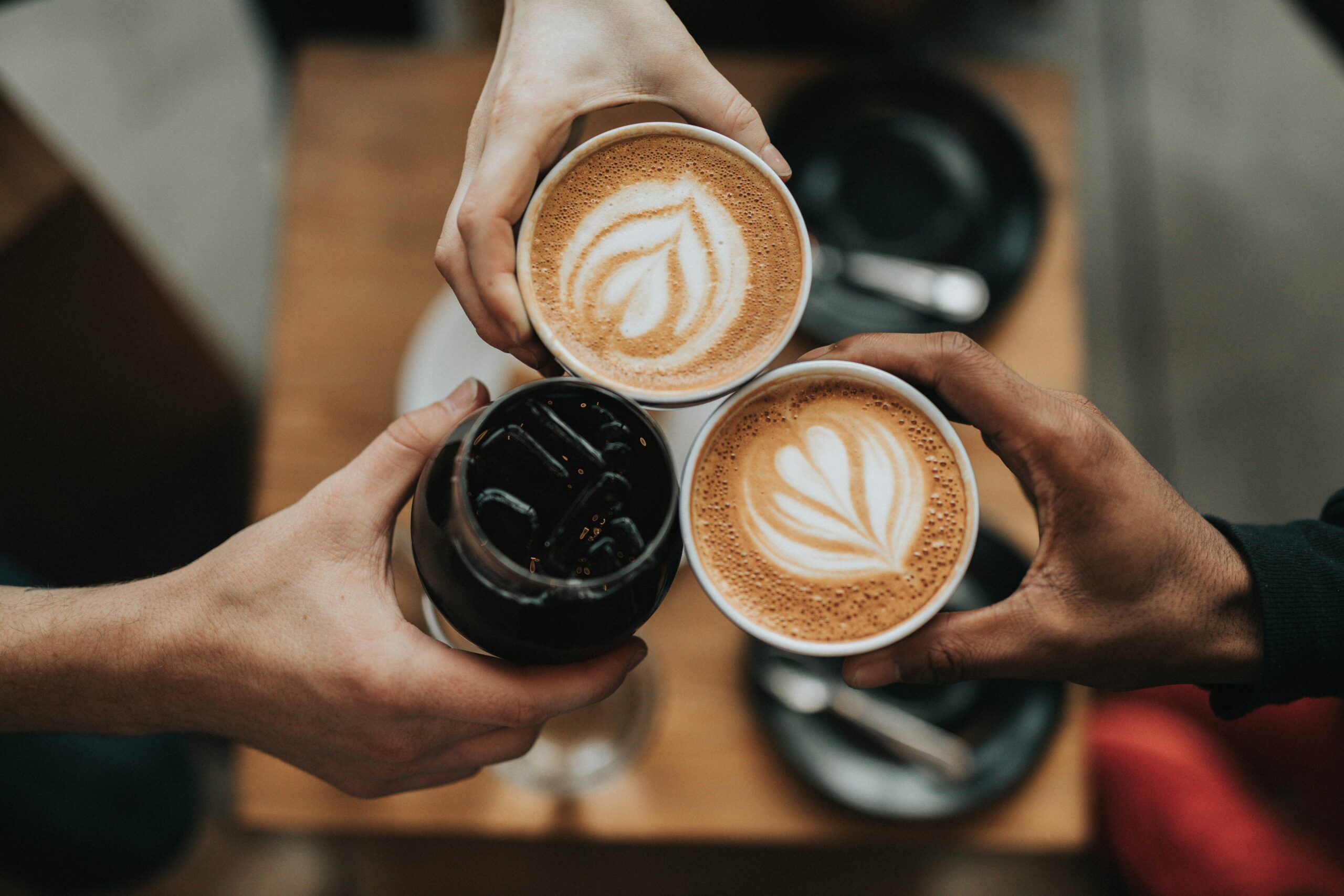
Why Kyoto Is a Coffee Lover’s Paradise
Kyoto isn’t just Japan’s cultural heart; it is also one of the country’s most passionate coffee cities. With hundreds of cafés scattered across its neighborhoods, from traditional tearooms that now serve espresso to modern roasters tucked into quiet side streets, Kyoto has built one of the most respected coffee scenes in Asia.
Here, coffee is treated with real devotion. Baristas approach brewing as a craft, carefully weighing, grinding, and pouring with precision.
Many cafés roast their own beans in small batches to highlight subtle flavors, and several Kyoto-based roasters supply beans to other specialty shops across Japan and beyond. The quality of the coffee is consistently exceptional, whether you are ordering a hand-poured single origin or a perfectly balanced flat white.
What makes Kyoto stand out is how effortlessly it combines skill with atmosphere. You can enjoy a world-class cup of coffee beside a temple garden, in a cozy alleyway café, or at a minimalist espresso bar filled with the aroma of freshly roasted beans.
The city’s focus on craftsmanship, quality, and calm is what makes it a true paradise for coffee lovers.
The Best Coffee Shops in Kyoto Our Local Favorites
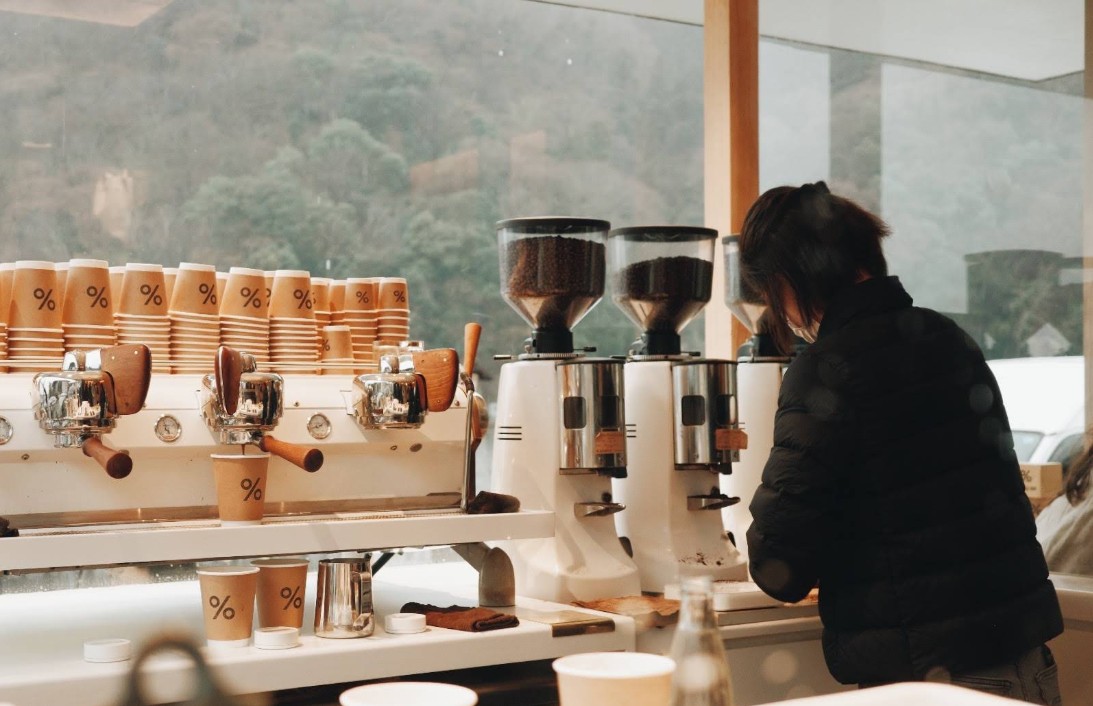
%Arabica Kyoto Arashiyama, Higashiyama, Kawaramachi
%Arabica is more than a coffee shop; it is a global brand that began right here in Kyoto. Founded by Kenneth Shoji, a Kyoto-based entrepreneur and coffee lover, %Arabica opened its flagship stores in Higashiyama and Arashiyama before expanding to over 150 locations around the world. Despite its international fame, the original cafés in Kyoto remain the most authentic and beloved.
The Higashiyama location is the most iconic, offering a clear view of Yasaka Pagoda and a peaceful street scene that feels timeless. The coffee itself is exceptional, with precise espresso pulls and blends roasted to highlight smooth, balanced flavors.
Must-try: Try the Spanish latte or the signature Kyoto blend, both of which showcase the brand’s signature balance of sweetness and strength.
Tips: Visit early in the morning to avoid lines and to enjoy the soft Kyoto light that spills down the historic stone lane.
The Higashiyama and Arashiyama locations open at 9 am, a perfect time to grab a morning coffee!
Visit their official website HERE!
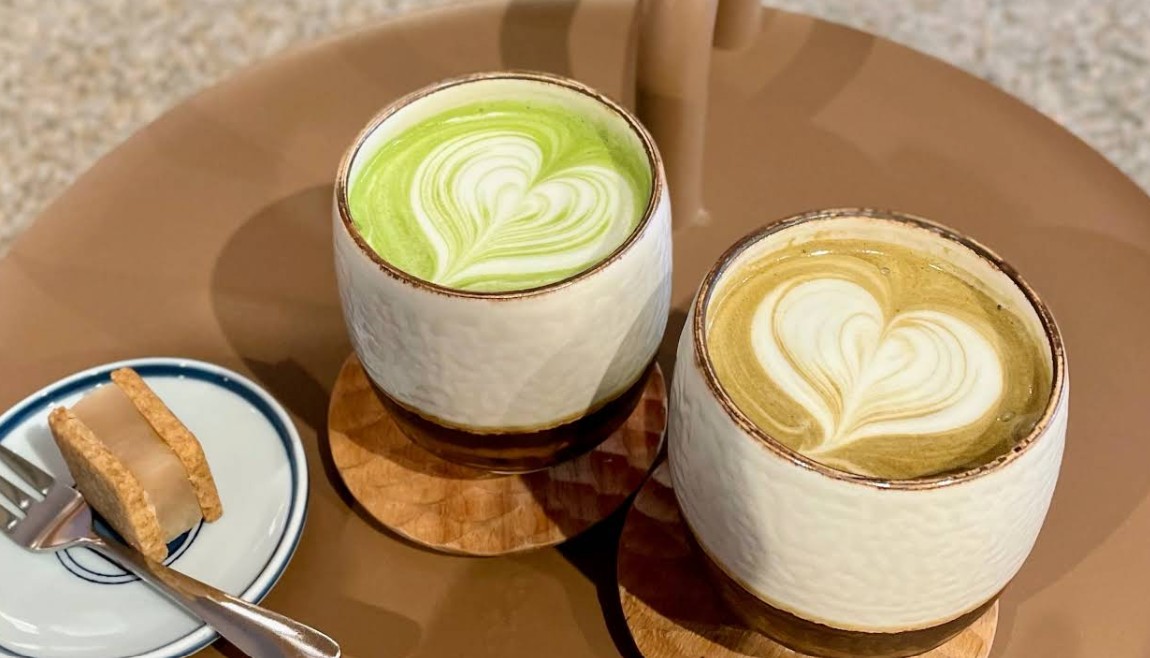
Kurasu Kyoto
Just a short walk from Kyoto Station, Kurasu Kyoto is a minimalist coffee haven that perfectly captures the city’s balance of craftsmanship and calm. The café’s clean wood-and-concrete design reflects the essence of modern Kyoto style: simple, intentional, and beautifully functional. It is a favorite among travelers and locals alike who appreciate specialty coffee served with quiet precision and warmth.
Kurasu is known for its exceptional pour-over coffee, brewed to highlight the natural sweetness and complexity of each bean. The café also serves espresso-based drinks, matcha lattes, and limited seasonal blends, all made with beans roasted in-house or sourced from trusted local roasters. The staff’s attention to detail and friendly guidance make it easy for both beginners and coffee aficionados to find a brew they love.
Must-try: Single-origin pour-over or espresso flight to sample Kurasu’s signature roast profiles.
Tips: Visit mid-morning to avoid crowds from Kyoto Station. Kurasu also sells its own beans, filters, and brewing gear, making it a perfect spot to pick up thoughtful souvenirs or gifts for coffee lovers.
Visit Kurasu Kyoto HERE!
Visit their official website HERE!
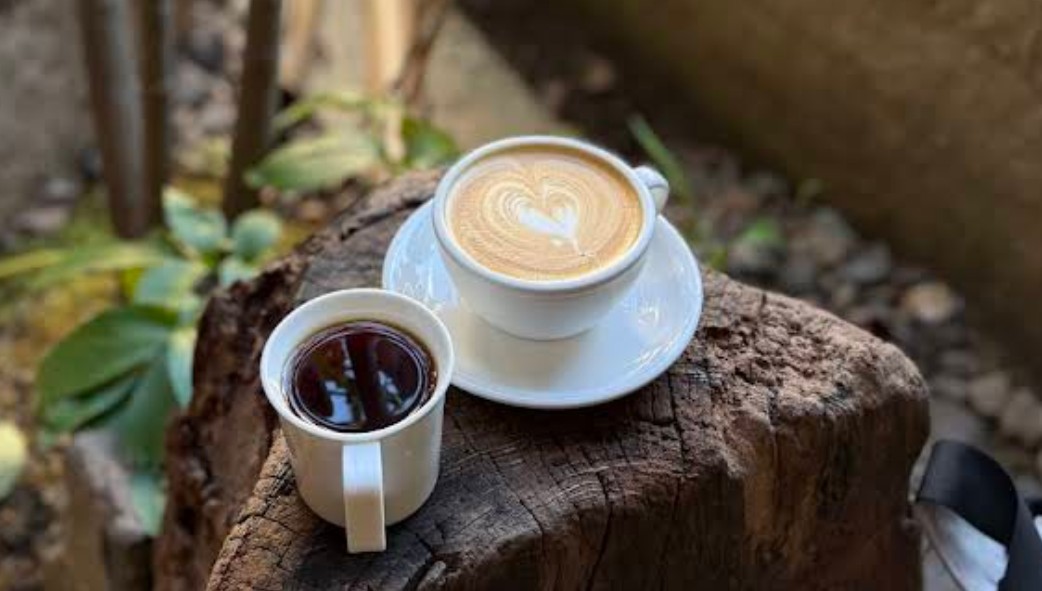
Weekenders Coffee Karasuma
Tucked away behind an old parking lot in central Kyoto, Weekenders Coffee is one of the city’s most beloved local spots. It began as a small roastery with just a takeout counter, but its reputation quickly spread among baristas and coffee enthusiasts who value substance and skill over style.
The café’s setup is simple: a bench, a modest stand, and the rich aroma of beans roasted fresh on-site. What sets Weekenders apart is its commitment to quality. The baristas rotate their roasts frequently, sourcing beans from top producers around the world and focusing on precision in every cup. The espresso is smooth and balanced, and the pour-overs highlight the kind of craftsmanship that defines Kyoto’s coffee scene.
Here, coffee is meant to be enjoyed slowly and respectfully. Guests are encouraged to drink their coffee in glass mugs at the shop, appreciating both the flavor and the atmosphere. If you prefer takeaway, Weekenders asks customers to bring their own cup, reflecting Kyoto’s growing focus on sustainability and thoughtful consumption.
Must-try: The double espresso or the seasonal single-origin pour-over, both roasted in-house for exceptional depth and clarity.
Tips: Weekenders Coffee is best visited on weekday mornings when it is quieter since there is very limited seating. If you want to watch the roasting process, try to stop by mid-morning when the roaster is running.
Weekenders Coffee opens at 7:30 am, so it is the perfect first stop to energize yourself for a busy day of sightseeing!
Visit WEEKENDERS COFFEE here!
Visit their official website here!
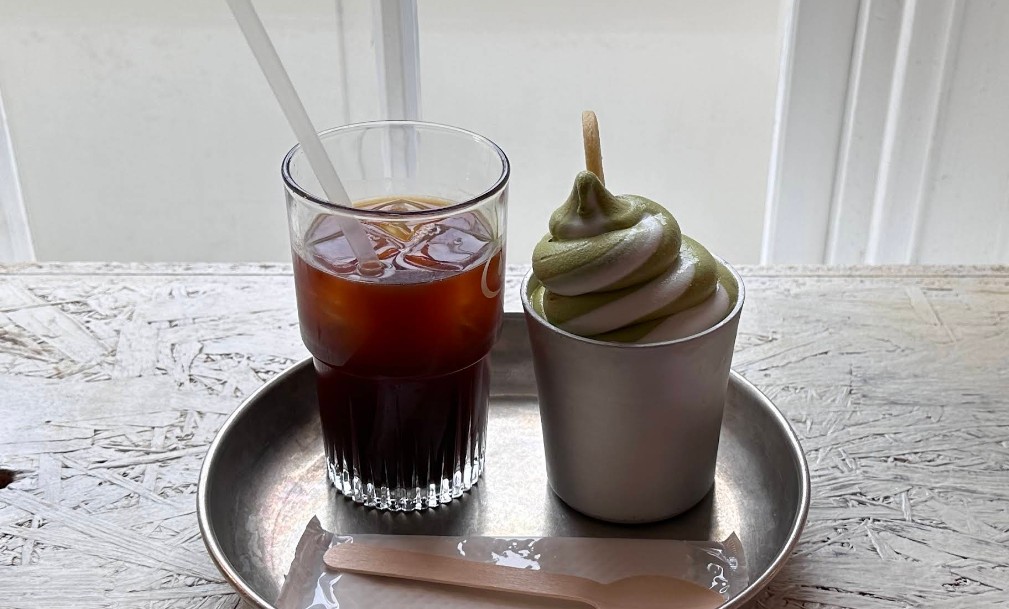
Walden Woods Kyoto
Located just south of Gojo Station, Walden Woods Kyoto is one of the city’s most photogenic and relaxing cafés. Set inside a renovated white building with high ceilings and soft natural light, it blends Scandinavian minimalism with Japanese calm. The open, all-white interior gives the café an airy and tranquil feel, making it a favorite spot for creative travelers, students, and digital nomads looking for inspiration over a cup of specialty coffee.
The menu focuses on clean, balanced flavors. Their hand-drip coffee is a highlight, brewed slowly to bring out delicate aromas and a smooth finish. Espresso drinks are equally well-crafted, and seasonal options often feature beans from top Kyoto roasters. The café’s simplicity encourages guests to slow down and enjoy the space, whether they are reading, journaling, or working quietly.
Must-try: Hand-drip coffee or a classic latte paired with a house-made pastry.
Tips: Visit on weekday mornings for a calm atmosphere and the best lighting for photos. Seating is mostly communal, so it is ideal for solo visitors or small groups who want to unwind in a peaceful, modern setting.
Visit Walden Woods HERE!
Visit their official website HERE.
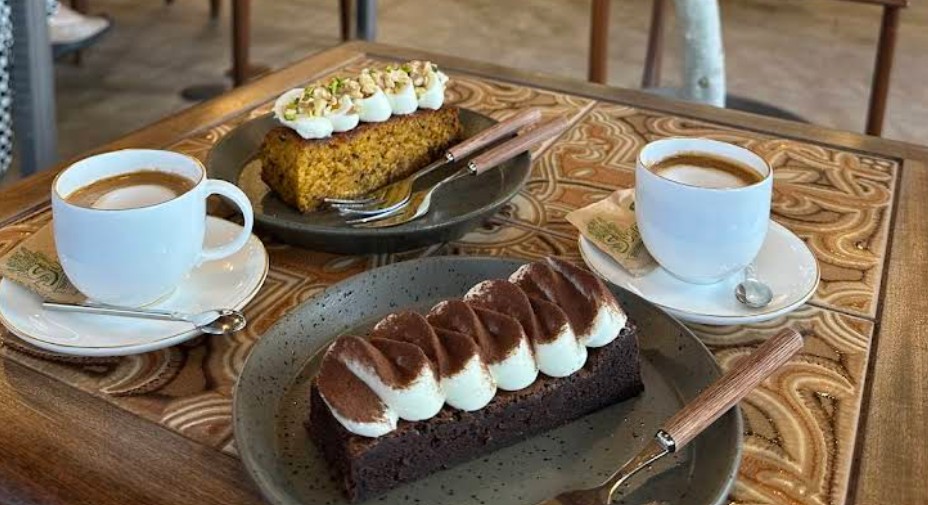
Goodman Roaster Kyoto
Goodman Roaster Kyoto is one of the city’s most beloved third-wave coffee spots, a cozy and design-forward café tucked away near Gojo. Known for its clean Scandinavian-Japanese interior and consistently excellent coffee, Goodman Roaster has become a favorite among locals and travelers who appreciate both craftsmanship and calm.
What sets Goodman apart is its focus on roasting. The café roasts all its beans in-house, offering a carefully curated selection of single-origin coffees sourced directly from ethical farms around the world. Each roast highlights unique flavor notes, from bright and fruity Ethiopian beans to smooth, chocolatey Guatemalan profiles. The baristas are friendly and knowledgeable, always ready to share tasting notes or recommend a brew based on your preferences.
The café’s interior design is a highlight in itself: minimalist concrete counters, soft wood textures, and large windows that fill the space with warm Kyoto light. It’s the perfect place to slow down, enjoy your drink, and watch the roasting process unfold. Goodman also serves a small food menu with pastries and light brunch options that pair beautifully with their coffee.
Must-try: The single-origin pour-over (ask the barista for their recommendation) or the Goodman espresso blend, which is smooth, balanced, and roasted to perfection.
Tips: Goodman Roaster Kyoto opens at 8:30am on weekdays and 9am on weekends, making it an ideal stop for a relaxed morning coffee before exploring nearby neighborhoods like Karasuma or Gojo.
Visit Goodman Roaster Kyoto HERE.
Visit their official website HERE!
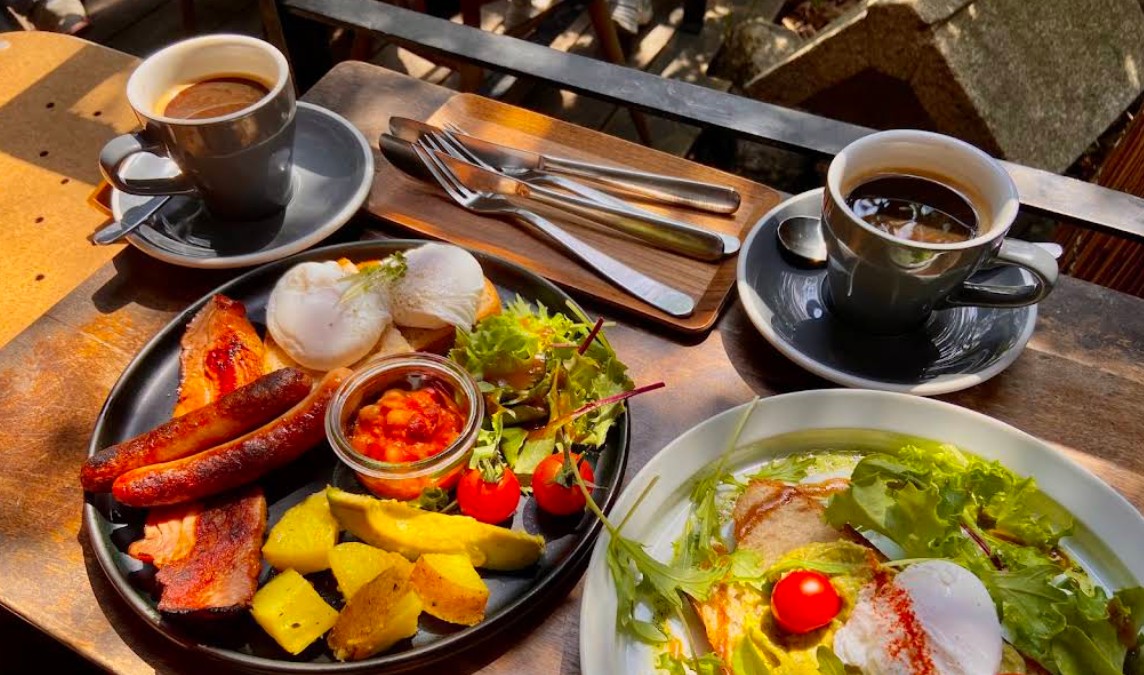
Hidden Gems You Won’t Find on Every List
Vermillion Café (Fushimi Inari)
Located just behind the famous Fushimi Inari Shrine, Vermillion Café is a peaceful hideaway where you can enjoy a perfect cup of coffee while overlooking a quiet pond surrounded by trees. It’s a small, relaxing space run by friendly locals who take pride in serving high-quality espresso and hand-drip coffee. The atmosphere feels worlds away from the busy shrine path just a few steps away.
Why visit: Ideal for a quiet break after visiting Fushimi Inari. Try their flat white or cold brew while taking in the tranquil view.
Visit Vermillion Cafe here!
Drip & Drop Coffee Supply (Karasuma)
Tucked beneath a quiet street near Karasuma, Drip & Drop Coffee Supply combines urban style with Kyoto’s slow-living spirit. Known for its expert baristas and beautifully presented drinks, it’s a favorite among locals who appreciate both design and quality. The café also serves light snacks and sells its own line of beans and gear.
Why visit: A stylish underground café with excellent pour-overs and espresso drinks. Great for digital nomads or travelers seeking a cool yet cozy atmosphere.
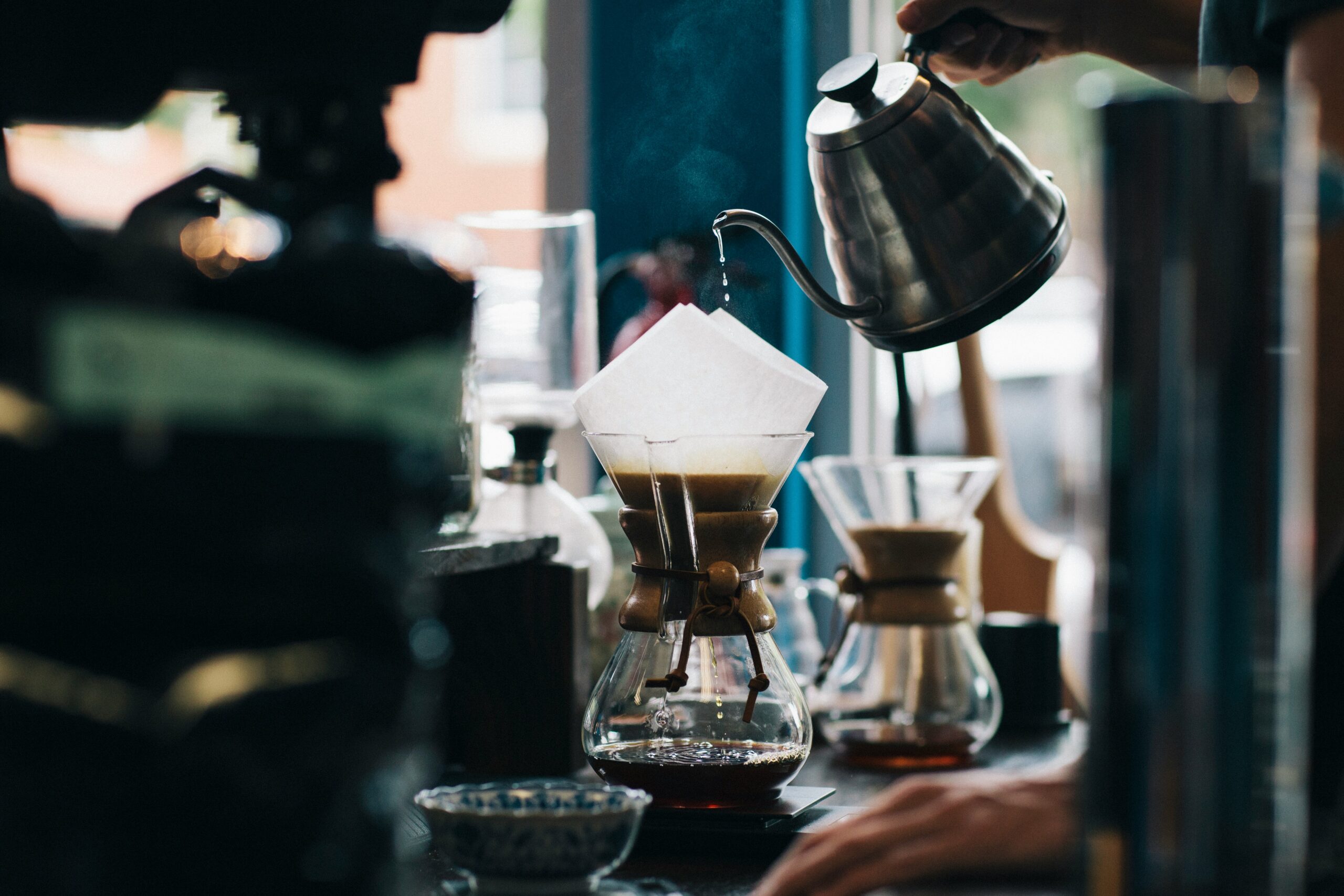
What Makes Kyoto Coffee So Special
Kyoto coffee stands apart for its balance of precision brewing and aesthetic minimalism. Baristas in Kyoto approach each cup like a craft, carefully measuring beans, monitoring temperature, and timing every pour to extract clean, nuanced flavors.
The cafés themselves reflect the city’s understated beauty with warm wood interiors, soft light, and a calm atmosphere that invites slow enjoyment. This focus on detail and design creates an experience that is as visual and emotional as it is flavorful.
At the heart of Kyoto’s café culture is omotenashi, the Japanese philosophy of genuine hospitality. Every element, from the graceful presentation to the quiet attentiveness of the staff, embodies this spirit. Rather than rushing customers, Kyoto cafés encourage connection, reflection, and appreciation. It is this sense of mindfulness that transforms a simple coffee stop into a deeply human experience unique to Japan.
Another hallmark of Kyoto coffee culture is its dedication to small-batch roasting and local sourcing. Many local roasters prioritize quality over quantity, using ethically sourced beans and roasting in limited batches to highlight the natural character of each origin. Some cafés even collaborate with local artisans, pairing coffee with seasonal sweets or experimenting with matcha-infused blends.
The result is a thriving, sustainable scene that blends traditional Japanese values with modern coffee innovation.
Tips for Exploring Kyoto’s Café Scene
To make the most of your Kyoto café experience, plan your visits for quiet hours and explore beyond the tourist hubs. Early mornings or weekdays are ideal when the city feels calm and baristas have more time to focus on precision brewing and presentation.
Best Times to Visit
- Mornings (8–11 a.m.): Fewer crowds and the freshest brews, but some places open in the late morning, so be sure to check the opening times!
- Weekdays: A relaxed pace, perfect for a slower and peaceful coffee enjoyment.
Café Etiquette in Kyoto
- Speak quietly and respect the calm atmosphere.
- Order and pay at the counter, then take your seat.
- Limit laptop use unless the café specifically allows it.
- Return cups or trays after use as a small act of courtesy.
Budget and Local Tips
- Expect to spend ¥500–¥900 per cup, depending on roast and method.
- Many cafés offer small desserts or local pastries that pair beautifully with Kyoto coffee.
Combine your coffee break with a temple walk or garden visit nearby. Cafés near Nanzen-ji, Gion, and the Philosopher’s Path offer peaceful settings and local charm.
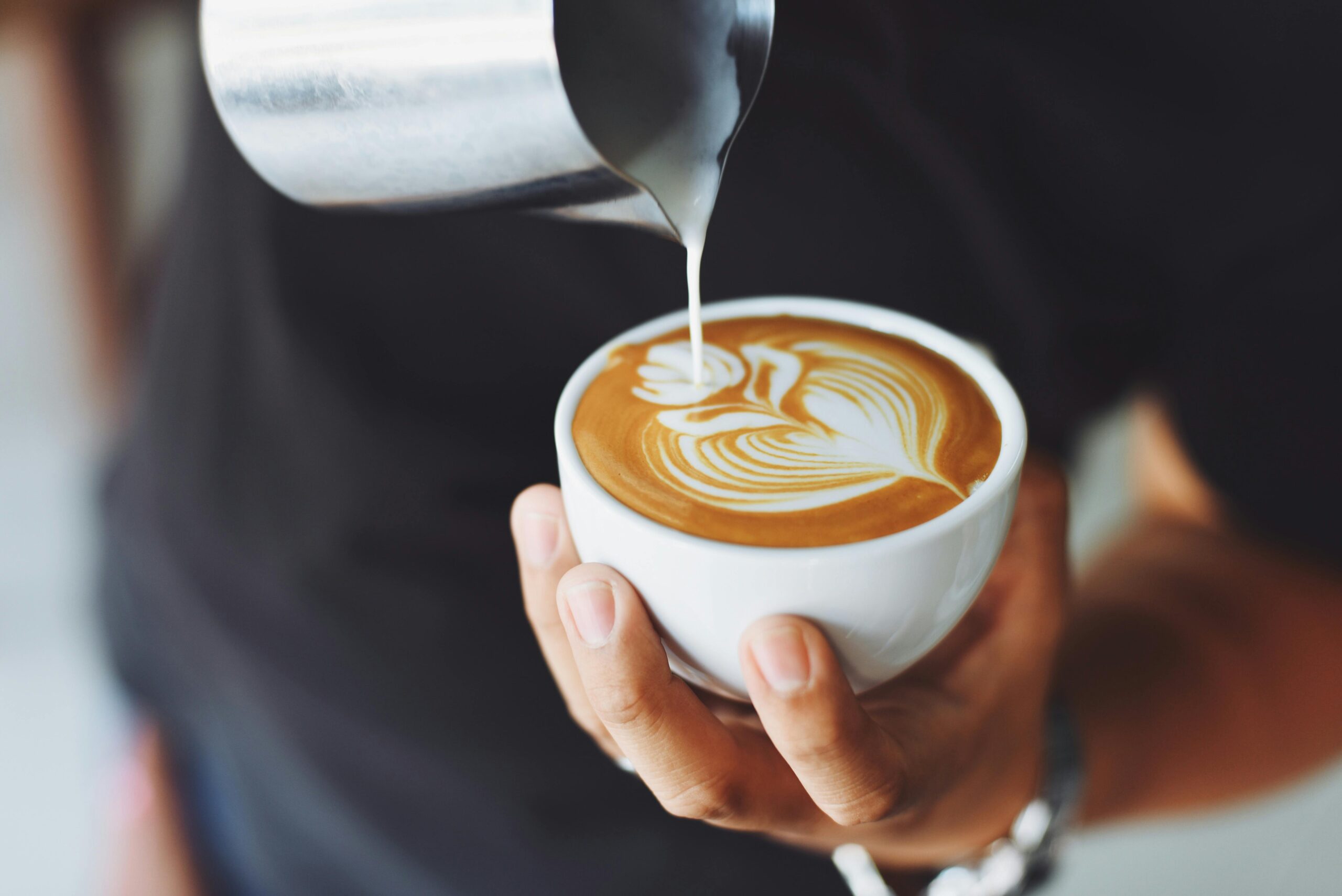
Slow Down and Sip Kyoto
In Kyoto, coffee is more than a drink. It is a quiet ritual that reflects the city’s values of balance, precision, and presence. Whether you are sipping a single-origin pour-over at Weekenders Coffee or watching the morning light spill across the counter at %Arabica, each moment captures the calm spirit that makes Kyoto coffee so unforgettable. The best way to experience it is to slow down, savor the craftsmanship, and let the rhythm of the city guide your café journey.
The beauty of Kyoto’s café scene lies in its variety. You can start your day with a minimalist espresso near Higashiyama’s pagodas, recharge with a pour-over after exploring Gion’s streets, or end the afternoon in a cozy hidden shop near Nanzen-ji. Each café tells its own story of local sourcing, thoughtful roasting, and genuine hospitality. For coffee lovers in Kyoto, every cup is a connection between tradition and creativity.
As you explore, step off the main roads and wander into side streets where smaller roasters and neighborhood cafés quietly thrive. These are the places where Kyoto’s coffee culture truly shines. If you loved this guide, check out our related posts on the best matcha cafés in Kyoto or Osaka’s coolest coffee shops to continue your caffeine journey through Japan.
Interested in learning about incredible sightseeing locations across Kyoto? Make sure to check out our other blog posts, such as our guide to the Nishiki Market, the history of Fushimi Inari, and an itinerary for 3 full days in Kyoto.
We also run food tours in Kyoto, Tokyo, and Osaka, so be sure to put those on your itinerary when you come to Japan!
Speaking of itinerary, we at Ninja Food Tours provide itinerary reviews exclusively for our food tour guests. We also share personalized recommendations tailored to your trip! So be sure to check out our food tours in Kyoto!
FAQ: Coffee in Kyoto
Q: Is Kyoto good for coffee lovers?
A: Yes. Kyoto is one of Japan’s best cities for coffee lovers and has a thriving specialty coffee scene. The city is filled with independent cafés, artisan roasters, and skilled baristas who treat coffee with real care and precision. Kyoto’s slower pace allows you to enjoy coffee at its best, often brewed by hand and served with a level of attention that reflects the city’s culture of craftsmanship. Whether you visit a famous name like %Arabica or a hidden café in a quiet neighborhood, you will find that Kyoto takes coffee very seriously.
Q: What areas of Kyoto have the best cafés?
A: Some of the best cafés are found in Higashiyama, Karasuma, and Gojo.
- Higashiyama is ideal for scenic cafés near temples and historic streets, perfect for pairing coffee with a morning walk.
- Karasuma is central and stylish, home to local favorites like Weekenders Coffee and Walden Woods Kyoto.
Each neighborhood has its own charm, so exploring different areas is one of the best ways to experience Kyoto’s café culture.
Q: What time do cafés open in Kyoto?
A: Many cafés in Kyoto open later in the morning than visitors might expect. Most specialty coffee shops open around 9:30 or 10 a.m., and a few start as late as 11 a.m. This reflects Kyoto’s slower pace and focus on quality rather than convenience. If you want an early coffee, look for hotel cafés, bakery cafés, or classic coffee houses that cater to breakfast crowds. Afternoon hours are when Kyoto’s independent coffee scene truly comes to life.
Q: Do Kyoto cafés serve plant-based milk?
A: Sometimes. Many specialty cafés in Kyoto offer oat, soy, or almond milk for lattes and other espresso drinks. Shops like Kurasu Kyoto and Walden Woods are known for being especially friendly to plant-based drinkers. While traditional cafés may still serve only dairy milk, most modern coffee shops in Kyoto are happy to accommodate alternative milk options.
Q: How much does coffee cost in Kyoto?
A: A typical cup of coffee in Kyoto costs between ¥500 and ¥900 (around 4 to 7 USD), depending on the café and the style of brew. Espresso-based drinks are often slightly more expensive, while pour-overs and drip coffees tend to be priced by bean type. Specialty cafés that roast their own beans usually charge a bit more but deliver exceptional quality for the price.
Q: What is Kyoto’s coffee culture like?
A: Kyoto’s coffee culture values craftsmanship, calm, and connection. Many baristas see coffee as a form of art, focusing on balance, aroma, and presentation. Unlike the fast takeaway culture in larger cities, Kyoto encourages guests to slow down and enjoy the full experience of the brew. Cafés here often emphasize local ingredients, handmade pastries, and warm hospitality, making each visit feel personal and memorable.
Q: Are Kyoto cafés laptop-friendly?
A: Some are, but not all. Kyoto’s cafés are designed primarily for relaxation and conversation rather than remote work. Larger spots like Kurasu or Walden Woods often welcome laptops, especially on weekdays, while smaller shops, such as Weekenders Coffee, encourage guests to enjoy their coffee without screens. Always look for signs or ask politely before setting up to work.
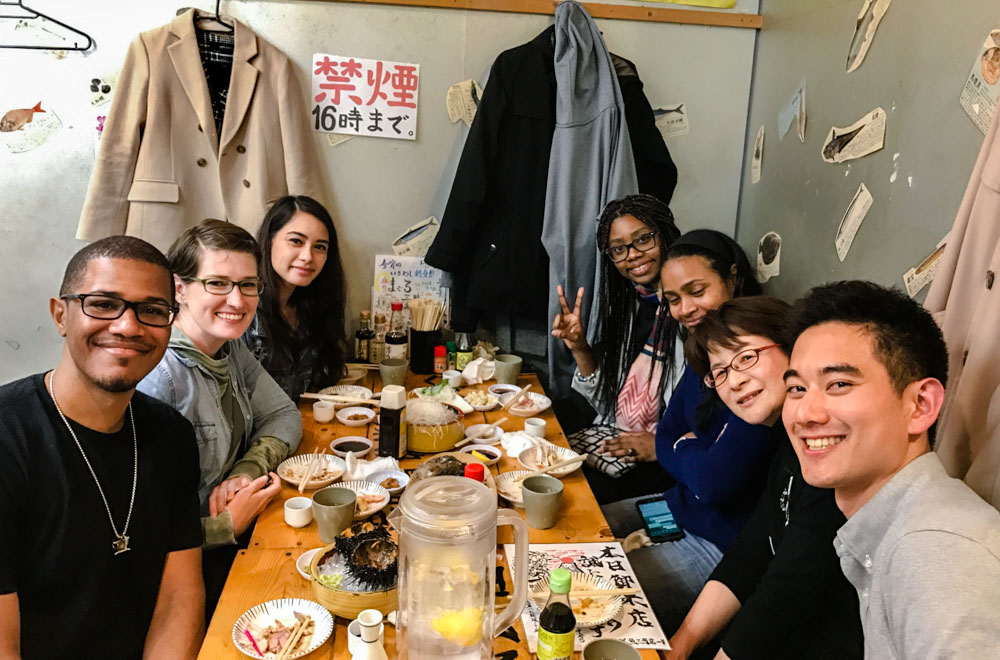
7 of the Best Tokyo Food Tours You’ll Love (With Prices & What to Expect)
Tokyo can feel overwhelming for food lovers. The city has more than 160,000 restaurants, from tiny ramen counters to lantern-lit izakayas and Michelin-starred sushi bars. It’s magical, but also intimidating if you don’t speak Japanese or know where to begin. That’s where food tours shine: they cut through the chaos and connect travelers with authentic local […]
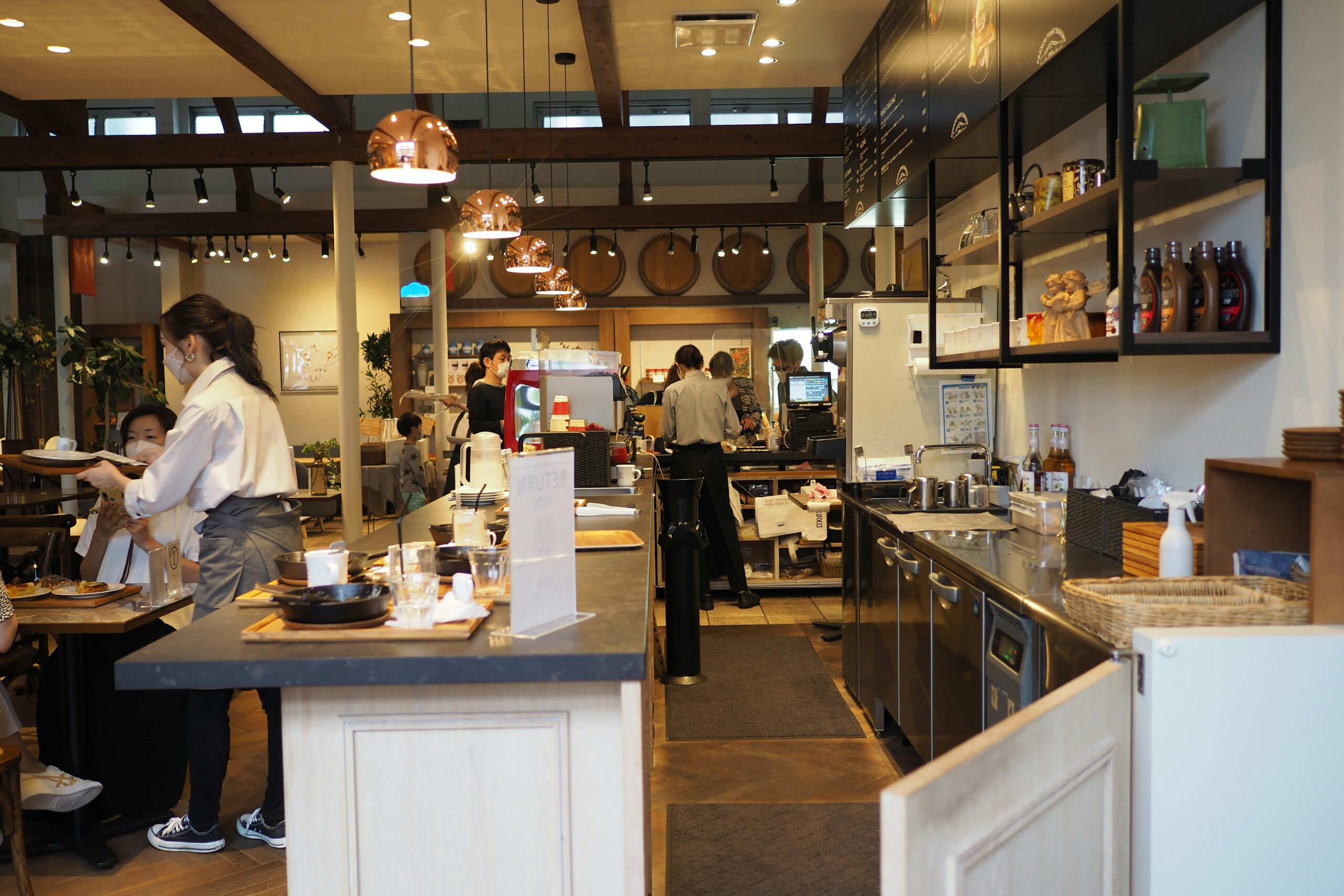
Where to Get the Best Coffee in Kyoto: Local Favorites and Hidden Gems
Kyoto may be famous for its temples, tea ceremonies, and timeless streets, but locals know this city runs just as much on coffee as it does on matcha. Tucked between quiet lanes and bustling markets, you’ll find an ever-growing scene of cafés that blend Japanese craftsmanship with global coffee culture. From minimalist roasters pouring single-origin […]
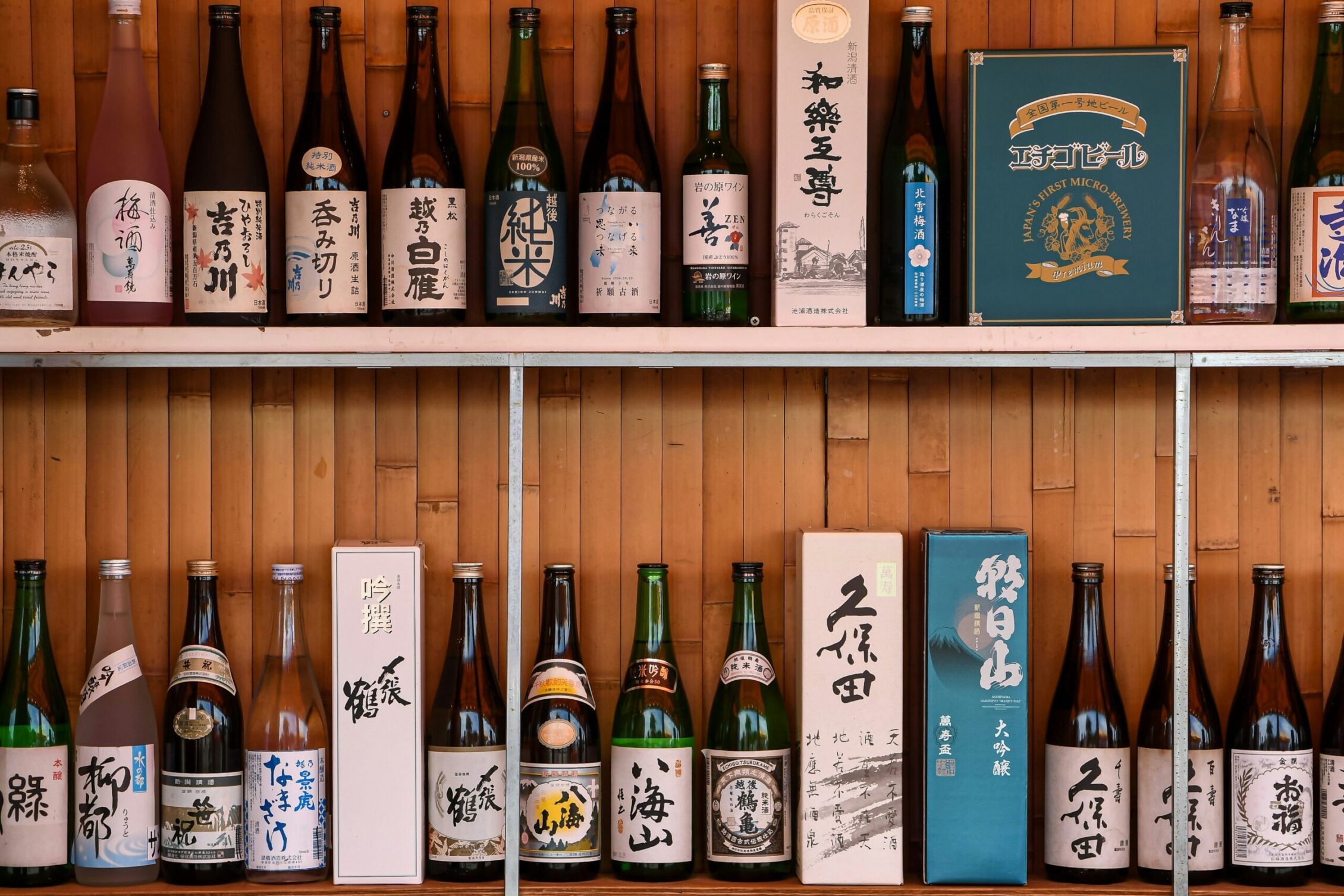
Best Sake Bars in Kyoto: Local Favorites and Tasting Tips
Kyoto: The Heart of Japan’s Sake Culture By day, Kyoto hums with quiet grace. Temple bells echo through bamboo groves, monks stride through moss gardens, and the scent of incense drifts in the air. But when night falls, the city’s calm spirit transforms. Lanterns flicker to life in narrow alleys, laughter spills from cozy izakayas, […]
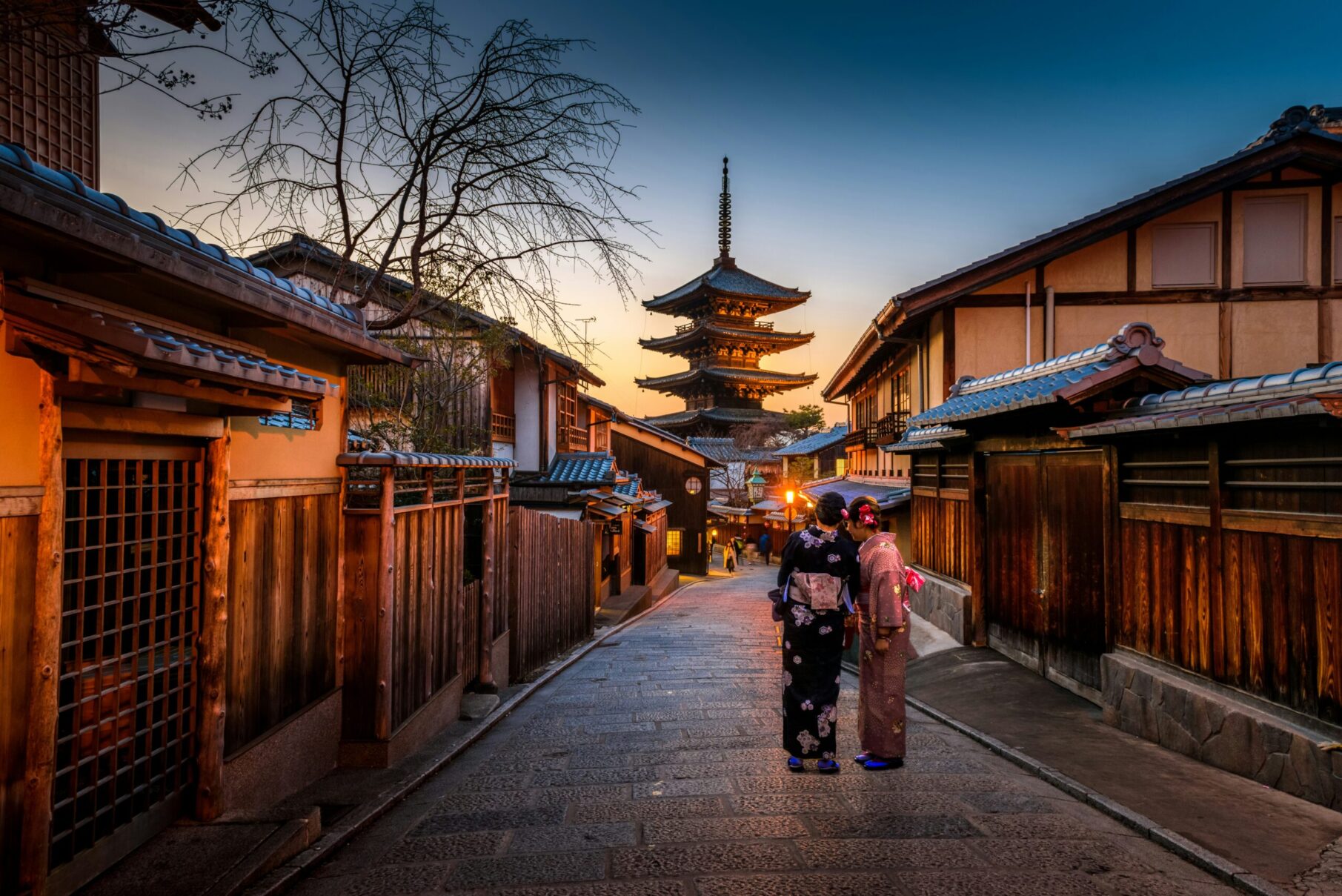
Kyoto Kaiseki on a Budget: 5 Authentic Restaurants You Can Actually Afford
Kyoto is one of the world’s great places to experience kaiseki cuisine. But what exactly is kaiseki? It is a multi-course haute cuisine rooted in respect for seasonality, ingredients, presentation, and ritual. Kaiseki is more than just food. It’s an experience: the sequence of courses, the setting (tatami room, garden view, etc.), the aesthetic of […]

